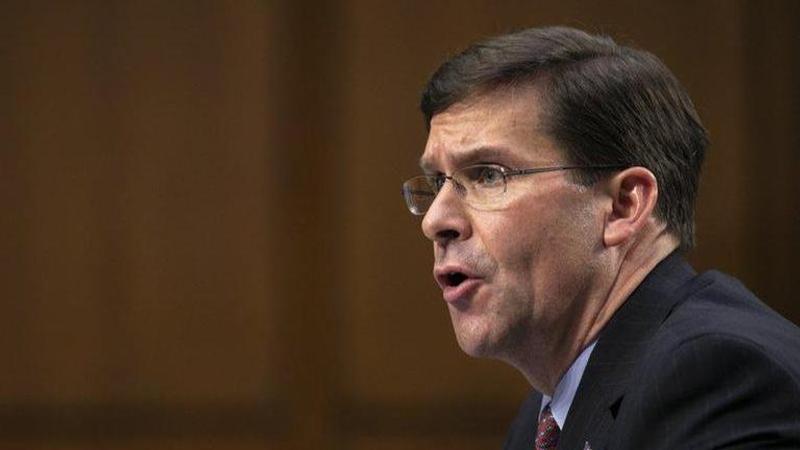Published 11:53 IST, March 6th 2020
Esper says new virus won't prevent military operations
The U.S. military and its warfighting command centers in the Pentagon are prepared to continue operations even if there is a local outbreak of the new coronavirus, Defense Secretary Mark Esper said Thursday, as the department began finalizing its response plans.

The U.S. military and its warfighting command centers in the Pentagon are prepared to continue operations even if there is a local outbreak of the new coronavirus, Defense Secretary Mark Esper said Thursday, as the department began finalizing its response plans.
Although only one soldier and a handful of family members and Defense Department civilians have so far tested positive for the virus, tens of thousands of troops are in countries and regions that have been hardest hit, including South Korea and portions of Europe.
The nation's more than 2.1 million active duty, Guard and Reserve forces are spread all around the globe. And they are one of the nation's last lines of defense against any outside threats or disasters during an outbreak, as well as a force that could be used as a last-resort to maintain order or enforce quarantines within the U.S. in the case of a pandemic.
“Our national military command center has the capability to go for weeks at a time if they have to be locked down inside the building if we have some type of outbreak,” Esper told reporters during a Pentagon press conference. He said the Pentagon is finalizing plans to prevent the spread of the virus across the force and military installations and also mitigate it in the event of any outbreak.
Already on Thursday, workers were wiping down doorknobs at the Mark Center, a major Defense Department complex in northern Virginia, and the Joint Chiefs of Staff had set up a 24-hour operations center inside the Pentagon to track the virus and any impact on the military.
Esper said that U.S. Forces Korea, where the solder and his wife and child tested positive, has set up a good model for other military commands to follow.
Army Gen. Robert Abrams, top commander of U.S. forces in Korea, has implemented restrictions on off-base travel — to include non-essential social events and “eat-in seated dining" — and allowed non-essential civilian workers and contractors to stay home. Abrams has also kept up a constant barrage of information to the troops, ranging from simple hygiene procedures to updates and even photos on Twitter of his visits with personnel affected by the virus.
Abrams, with his #IKILLthevirus mantra, has also done his own inspection of the local commissary to make sure the shelves were stocked and workers were wiping down displays and adhering to hygiene procedures.
Esper said the Pentagon is reviewing a number of measures to prevent the spread of the virus, including travel restrictions. He said he will get recommendations next week and hopes to begin putting some measures into effect by the end of next week. He did not provide details.
Already a number of military exercises have been curtailed or cancelled, travel has been restricted in some regions of Asia and Europe and some Navy ships in Europe have instituted a two-week quarantine period between port visits.
On Thursday, medical research professionals from the Army provided new details about their efforts to help develop better, more rapid testing as well as a longer-term vaccine for the virus, which has killed 12 people and infected more than 200 in the U.S.
Working with other federal agencies and private health companies, they said Walter Reed Army Institute of Research is looking at how to adapt existing vaccines, but echoed other U.S. experts who've said a vaccine for the public is 12 to 18 months away. A quick-response field test for the virus will also not be available any time soon, they said.
Army researchers said they got a sample of the virus from of the the patients who tested positive in Washington. They are using that to develop a vaccine as well as other countermeasures, such as drugs to boost immunity. Already, they said, they are doing some vaccine testing on mice.
The Pentagon has been unable, however, to provide a variety of details, including how many service members have been tested for the virus and how many test kits are available, amid lingering questions about whether military commands and bases currently have enough of those kits.
Updated 11:53 IST, March 6th 2020




